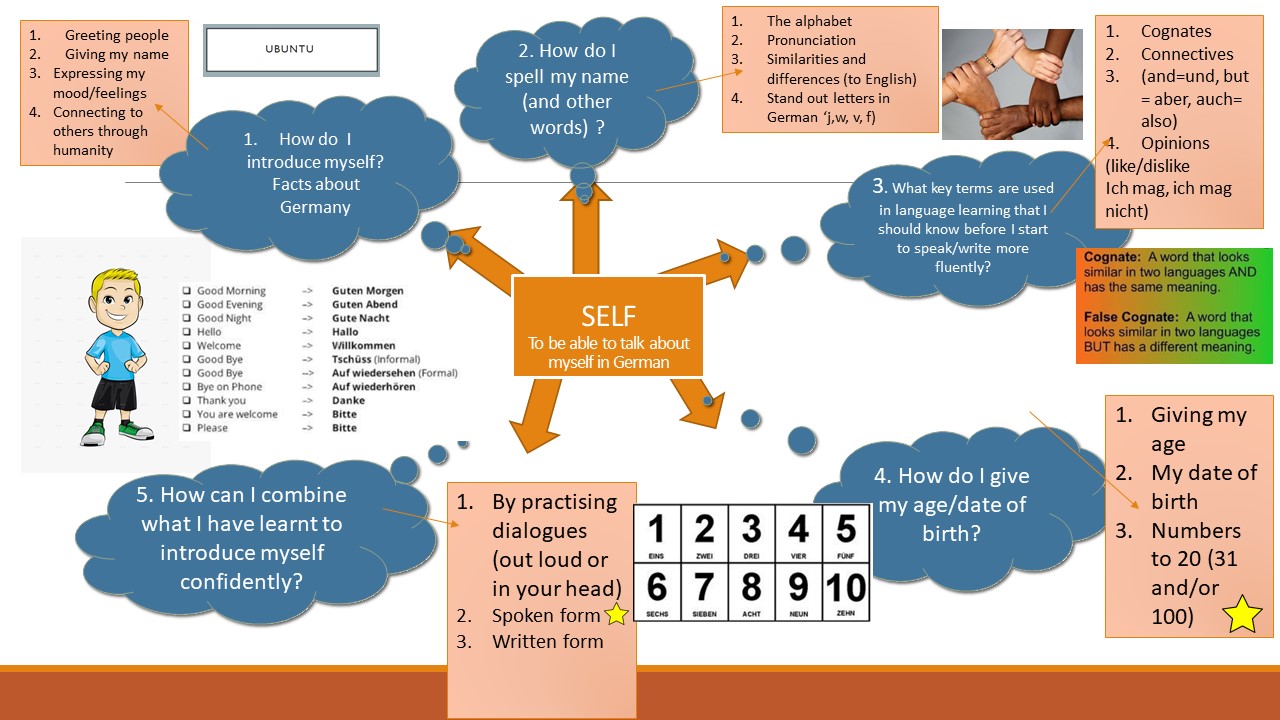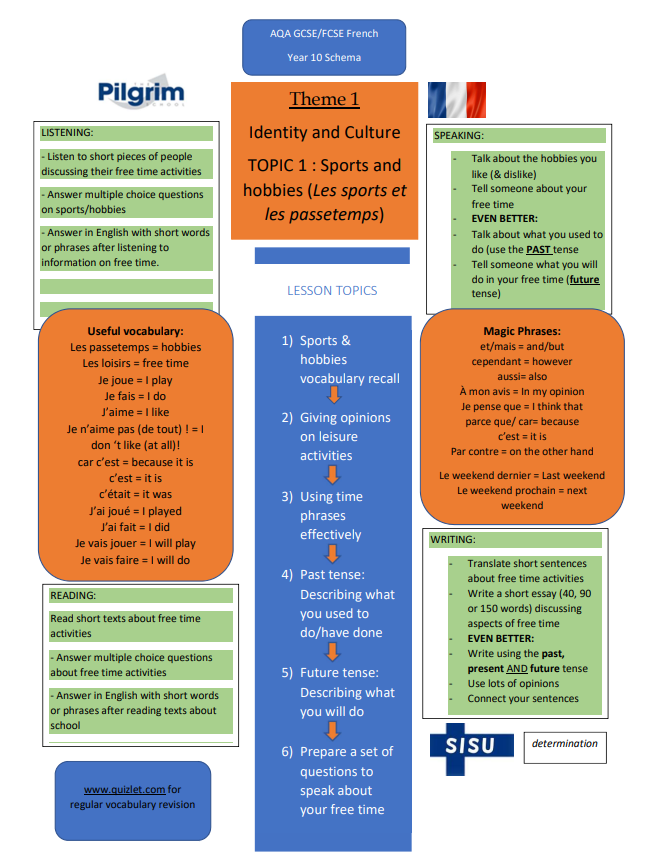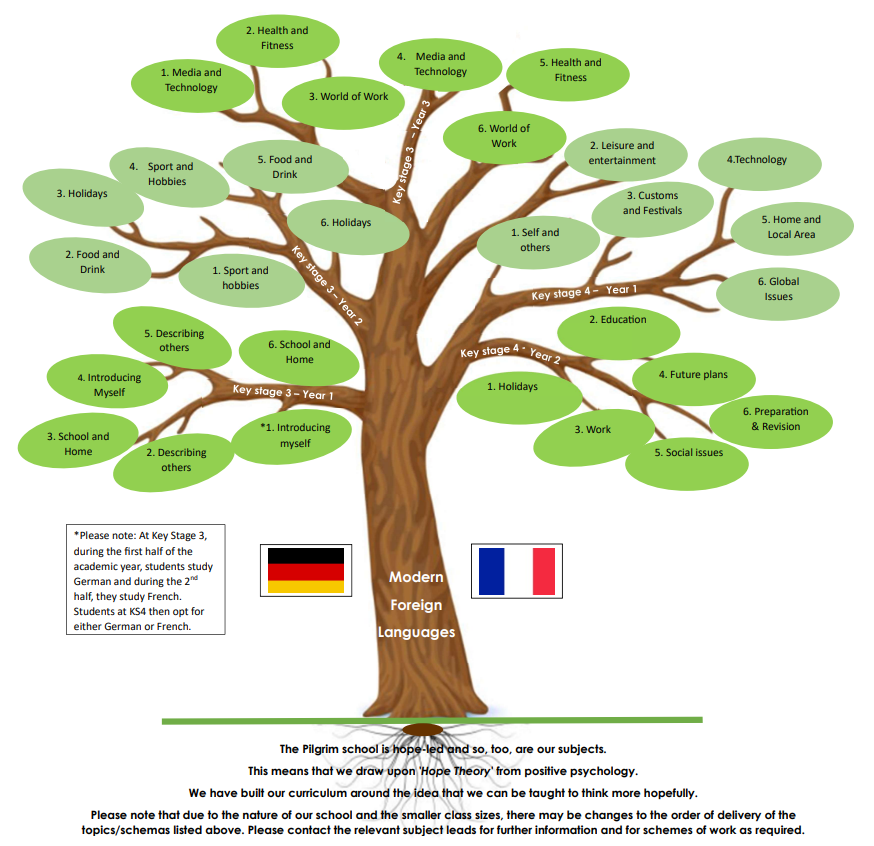Modern Foreign Languages
Introduction
When you learn a foreign language, you learn a whole new way in which to connect with others. One of the main aims of language lessons at Pilgrim is to build upon those connections and gain confidence in communicating. The lessons are designed to enrich the learners, not only by absorbing new words, but also by broadening our understanding of other cultures too. Alongside learning new vocabulary through word association, communicating in different ways and problem-solving to ‘crack the new language code’, we have lots of interactive fun too. Pupils can choose to take part in designing a tour of the Pilgrim School, finding the clues and prizes in treasure hunts around the bases, all in the chosen foreign language, or even producing culinary delights from the country.
MFL, Hope & Fundamental British Values
“To have another language is to possess a second soul”
Charlemagne
Language study at Pilgrim is designed to boost pupils’ esteem and to ensure they know that with hope and courage, they can achieve many things. From their language-learning journey, some may take away a few key words, others may go on to lifelong language study, but all will feel the benefit of learning new ways to communicate and having a deeper understanding about the world around us. This is especially important in a global society, connected evermore by technology and through language learning, pupils grow more tolerant of others and enhance their understanding of human nature, language and culture and how this can make us feel more secure in our everyday lives.
Goal
Example Schema


Pathways
KS3
In MFL at Pilgrim, French and German are taught over equal halves of each year (commencing with German). We follow a three-year programme and study a range of topics broadly relating to the themes of ‘Self & Others’, ‘Local Area’ & ‘Travel’. Each topic/schema is designed to enhance and enrich a young person’s experience of language-leaning but it also stands as a solid base for further study.
KS4
Should pupils wish to continue their language-learning journey at this stage, there are 2 pathways to a qualification at Pilgrim. French and German are taught via Pilgrim directly, however, pupils wishing to continue the study of another modern foreign language at this stage may do so in collaboration with their mainstream school.
The first option is the GCSE: We use the AQA exam board and students delve further into the topics studied at KS3. The 3 themes (teaching from September 2024) are ‘People & Lifestyle’, ‘Popular Culture’ & ‘Communication and the World Around Us’. These are then assessed via 4 papers - listening, speaking, reading & writing at the end of the 2-year course. Pupils are entered for either foundation tier (grades 1-5) or higher tier (grades 5-9).
The alternative option is the FCSE: This is a fantastic choice for relatively new learners of a language or who have less time to commit to the subject. The four language skills (listening, speaking, reading and writing) are assessed in class time, allowing for greater flexibility and less time pressure. The award is graded with pass, merit or distinction (with distinction roughly equivalent to GCSE grades 1-3).
Agency
Studying languages can lead to some exciting career options, but not only that, it can help you obtain employment more easily, in an area not directly related to languages, because it demonstrates the ability to communicate well, to problem-solve and to commit to learning something new. Some ideas of language-related careers are:
- Academic Researcher
- Diplomatic Service Officer
- English as a Foreign Language Teacher
- Intelligence Analyst
- International Aid/Development Worker
- Interpreter
- Political Risk Analyst
- Secondary School Teacher
- Translator
- Sales Executive
- Tour Manager
Support
Aside from the careful use of an online translator from time-to-time, pupils might benefit from using the following sites to support their language learning journey:

